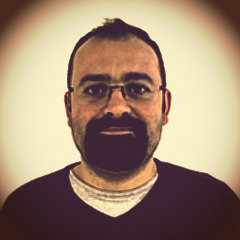MANCHESTER, England — Superuser talked to participants at the Ops Mid-Cycle Meetup about what they learned during the two-day session and what they’d like to see in the future.
All of the people we talked to were first-time attendees, either because they were relatively new to OpenStack or because geography made attending the Mid-Cycles in the United States difficult. The two-day sessions gathered about 100 operators from organizations including Rackspace, CERN, Walmart, IBM, Hewlett-Packard and DreamHost.
All the Etherpads from the two-day meetup, which took place at the windswept Salford Quays, are available online. Thanks go out to local host Datacentred and sponsors Canonical, Codethink, and Midokura who kept everyone fed and fully caffeinated.
If you missed the event, you can stay current on future Operators gatherings by joining the operators mailing list and attending the upcoming OpenStack Summit.
Francesco Saverio Proto a cloud engineer at Switch has been working with OpenStack for a year. Switch is a national research and education network in Switzerland, which runs a public cloud for national universities.

What brings you to the Mid-Cycle —were you involved in the Scientific Working Group sessions?
“As a national research and education network, we look very carefully at high-powered computing (HPC) over OpenStack. We’re very interested in big data work loads because our users commonly run around Hadoop and Spark on top of OpenStack so we try to design our cloud in a way that they can get the most out of it.”
What do you get out of these events?
“It’s very interesting to meet other people who run OpenStack with slightly different use cases, you can learn a lot from the experience of other operators. You learn about tools, best practices and that’s always useful. You find a lot of people who share your same problems, so you can talk about solutions. If they have already solved them, they will share them or you can work together to fix what’s not working.”
It’s good that these events also help bring out operator feedback for the developer community room so the two things don’t go in completely different directions and there is continuous feedback cycle between operators and developers.”
Crowd at #openstack ops midcycle, Manchester. pic.twitter.com/bIDOae5FIp
— Márton Kiss (@marton_kiss) February 15, 2016
Alexander Löw, infrastructure engineer at iNNOVO CLOUD, a German service provider and cloud operator.
How long has your company been working with OpenStack?
We started three years ago with the first implementations. We did a project last year where we learned a lot about HPC computing and the obstacles you come across with OpenStack. This is my first operators Mid-Cycle, for us it’s quite an advantage to see how other people are implementing their cloud, with experiences are, with their problems and obstacles are. And get also direct input into the community.
What are you working on now?
We are starting to build overseas containers with a data center installation, it’s 24,000 cores in one container, including storage…Rittal, the company we’re doing the project with, has a mine in Norway where they can store these containers as a data center. The cooling is done by the fjord water so you don’t need any chillers and we have redundant power due to power stations fed by waterpower, so you have a highly redundant power supply. It’s a perfect place to keep a data center. The cost for power compared to Europe mainland are also cheaper.
Jesse Pretorius, DevOps engineer engineer at Rackspace in London. A regular to local OpenStack meetups, this was his first Ops Mid-Cycle. He facilitated a session on engaging with the OpenStack community.
@odyssey4me presenting at the #OpenStack ops midcycle. pic.twitter.com/S9xZ2DBGFS
— Cloudnull¿ƃuᴉpnolƆ? (@cloudnull) February 15, 2016
What does it mean for you to have the Operators meetup in Europe?
From an OpenStack Ansible point of view, there are a lot of operators who are consuming the project and it’s quite interesting to be able to meet quite a few of them in person. It’s also quite good to see some of the US counterparts here as well.
It’s interesting to see the difference in conversations, the cross-country paradigms that go on here. You see people from very different countries who are dealing with the same problems and trying to resolve them together. That’s pretty cool. There are different perspectives, there’s a different profile of person than you typically see at the Summits, this is more accessible to many people.
What’s your biggest takeaway?
The networking side of things is probably the most powerful out of everything…It’s been good to get to know people in a smaller, more intimate environment…It’s different from the Summits just because of the size of it. The meetup provides a slightly more focused venue where we can have more substantive conversations.
Sampath Priyankara is a developer who works on cloud and Internet-of-things at NTT. As part of the team who won the most recent Superuser award, he’s been involved with OpenStack since the Atlanta Summit, but this was his first Operators Mid-Cycle.
What was most interesting for you?
I’m basically here to listen to the operators. I have been working with developers for the last four or five Summits, but we don’t get much chance to interact with the real operators or users.
The last op summit, my boss came to see what was going on and he found it very useful. you can listen to what people need and it’s for useful to us because we build clouds and put them into operation — but we don’t get any feedback. These dev-ops sessions are really useful for us we can see how people use the cloud and what are the future opportunities. Anybody can do standard architecture, but what can we add to make it more valuable? That’s what we can find here.
Was there anything you would like to see more of at the Ops Meet-Up?
More architecture talks would be great. And discussions how people create their clouds and why… People discuss the various components, but not the overall set-up as much. The lightning architecture sessions were great but it would be good to have more time to discuss why they did it and the way they did it. Showing architecture is great, but we have a lot of questions and there’s no time to really discuss why people set things up the way they did.
Alexandra Settle, information developer at Rackspace and OpenStack core reviewer. Based in Brisbane, Australia, she’s also an OpenStack Outreachy mentor.

What did you find most useful/interesting about the Mid-Cycle?
I wasn’t sure what to expect. I’m so far on the other side, it’s good for me to learn mor about what operators do and how they think. It was really interesting to see the session about [what they were using] and the ones about what [problems] they’re having…
What’s the relationship between docs and operators?
We want to encourage more of them to contribute, and it actually seems to be working! More people have approached me in the last day and said they want to help out…Some of them didn’t realize they could help out with developer documentation, not just OpenStack manuals, so that’s been really cool.
Cover Photo // CC BY NC Francesco Saverio Proto and Alexandra Settle photos via LinkedIn.
- OpenStack Homebrew Club: Meet the sausage cloud - July 31, 2019
- Building a virtuous circle with open infrastructure: Inclusive, global, adaptable - July 30, 2019
- Using Istio’s Mixer for network request caching: What’s next - July 22, 2019

)







